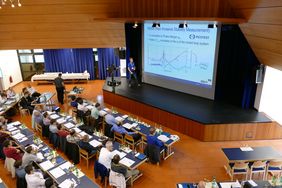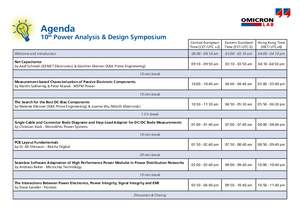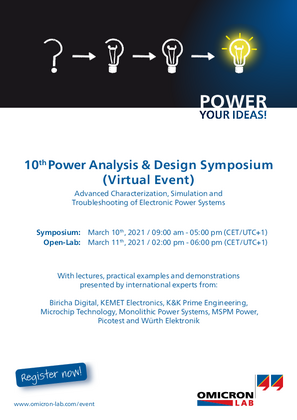10th Power Analysis & Design Symposium 2021 (VIRTUAL)
The OMICRON Lab Power Analysis & Design Symposium is an annual event focusing on advanced characterization, simulation, and troubleshooting of board-level power-electronic systems. International experts from the field include practical examples and demonstrations in their lectures.

The 13th Power Analysis & Design Symposium took place as a live, virtual event on Wednesday, March 10th, 2021.
No matter if you had time to attend the symposium or not, for your convenience we made all presentations available - below you will find the presentation pdf and the recording for each topic.
Seminar Topics
Net Capacitance
by Axel Schmidt (KEMET Electronics) & by Günther Klenner (K&K Prime Engineering)
Meanwhile it is common knowledge that MLCC Class II ( X7R, X5R) loose significant capacitance with DC-Bias. Beside this fact, net capacitance depends also on temperature, frequency, time (aging) and AC-ripple. Newer investigations show that the latter and the DC-Bias compensate instead of superimpose. The presentation contains the latest state of information on the topic.
Download the presentation
Watch the recording
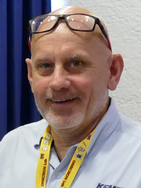

Measurement-based Characterization of Passive Electronic Components
by Martin Saliternig & Peter Maisel - MSPM Power
In the semiconductor industry, new technologies such as SIC and GAN are becoming increasingly dominant. This enables higher switching speeds to be achieved and high-frequency applications to be realized. Lower switching losses and less chip area are a major advantage of these both technologies. However, the passive electronic components must compensate this advantage by better filter effects or new types of magnetic materials. This does not mean lower power-losses or a reduction in the size of the components. The detailed measurement-based characterization of the passive components is and will be an essential part in the development of the components in the future. The MSPM Power GmbH has been engaged in the exact measurement-based-characterization of passive components in power electronic applications for several years now. An essential part of the investigations is the measurement-based-determination of power dissipation and the measurement-based-detection of parasitic effects in passive electronic components.
Download the presentation
Watch the recording


The Search for the Best DC-Bias Components
by Melanie Klenner (K&K Prime Engineering) & Joanne Wu (Würth Elektronik)
Have you ever tried to combine a RF-Signal and DC without you messing everything up? For example meanwhile designing a satellite LNB or video system. We have been looking into different components to compare already well known with unconventional ones and get the best design approach out of it. Come along and follow us on the journey from low to high frequency and low to high current.
Download the presentation
Watch the recording

Single Cable and Connector Bode Diagrams and Step-Load Adapter for DC/DC Bode Measurements
by Christian Kück - Monolithic Power Systems
A single LAN cable adapter connects the DC-DC converter with the Bode 100 measurement. This enables easy and robust test setups on the bench and in thermal chambers. A simple LAN patch cable is the only connection needed. Bode measurement performance, schematics and layout of the system is shown. In addition step load tests with an active step load on the DUT test adapter can be conducted. Good engineering practice of DC-DC loop compensation using Bode and step load measurements will be shown.
Download the presentation
Download the board design files
Watch the recording
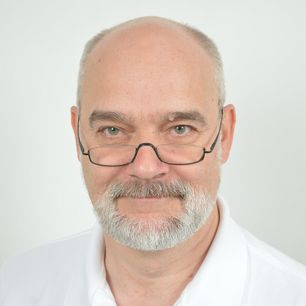
PCB Layout Fundamentals
by Dr. Ali Shirsavar - Biricha Digital
Fundamentals of noise coupling in electronic circuits are surprisingly straight forward if we look at the physics behind electron movement and interaction. In this session Dr Ali Shirsavar from Biricha will go through the principles of noise coupling in order to convey a deep understanding of PCB layout techniques. Instead of large mathematical equations, simple experiments are used to show how noise is coupled and how we should layout our pcb to avoid this coupling.
Watch the recording

Seamless Software Adaptation of High Performance Power Modules in Power Distribution Networks
by Andreas Reiter - Microchip Technology
Brick DC-DC converters are widely used in data center, telecommunication, automotive and aerospace applications, converting 48 V down to voltages such as 3.3 V, 5 V, 9 V, 12 V or 15 V. There is a continuous push towards higher power density while high performance loads increasingly affect power integrity. In this lecture a Gallium-Nitrite (eGaN) based, non-isolated, interleaved 300 W 16th brick power module is introduced, supporting up to 25 A output current at output voltages of 12 V at a maximum power density of 730 W/in³. The digital control system, implemented on a dsPIC33C® DSC, is used to fully exploit the high performance of eGaN FETs in fast switching Intermediate Bus Converter (IBC) applications. The digital feedback loop implementation is based on a PWM-steering scheme ensuring high-speed current balancing while providing high bandwidth response minimizing the size of the energy storage between converter and down-stream power distribution segment. The loop control further supports tuning of the converter output impedance to the total effective ESR of the decoupling capacitance. This allows end-users to tune the converter for an existing design rather than modifying the load to support the power module.
Download the presentation
Watch the recording
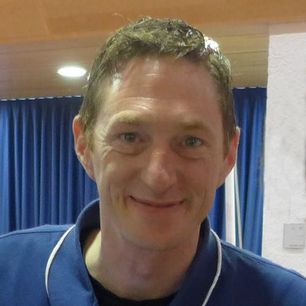
The Interactions Between Power Electronics, Power Integrity, Signal Integrity and EMI
by Steve Sandler - Picotest
Modern systems present many challenges including the trifecta of high-speed signal integrity, power integrity and EMI. Separate engineers are generally responsible for each of these domains, while each engineer focuses on his specialty. The shortfall of this approach lies in the fact that these domains interact with each other and so cannot be designed, characterized or evaluated independently, at least not without consideration. In this session, we will consider the performance issues that are unintentionally created by each individual engineer and present a holistic methodology for successful design. This will include, but not be limited to, the intersection between power electronics and power integrity.
Download the presentation
Watch the recording

Agenda
| Time | ||||
| Topic | Speakers | Central European Time (CET/UTC +2) | Eastern Standard Time (EST/UTC-5) | Hong Kong Time (HKT/UTC+8) |
| Welcome & Introduction | OMICRON Lab | 09:00 am | 03:00 am | 04:00 pm |
| Net Capacitance | Axel Schmit - KEMET Günther Klenner - K&K | 09:10 am | 03:10 am | 04:10 pm |
| Measurement-based Characterization of Passive Electronic Components | Martin Saliternig - MSPM Power Peter Maisel - MSPM Power | 10:00 am | 04:00 am | 05:00 pm |
| The Search for the best DC-Bias Components | Melanie Klenner - K&K Joanne Wu - Würth Elektronik | 10:50 am | 04:50 am | 05:50 pm |
| Single Cable and Connector Bode Diagrams and Step-Load Adapter for DC/DC Bode Measurements | Christian Kück - Monolithic Power Systems | 01:00 pm | 07:00 am | 08:00 pm |
| PCB Layout Fundamentals | Dr. Ali Shirsavar - Biricha Digital | 01:50 pm | 07:50 am | 08:50 pm |
| Seamless Software Adaptation of High Performance Power Modules in Power Distribution Networks | Andreas Reiter - Microchip Technology | 03:00 pm | 09:00 am | 10:00 pm |
| The Interaction Between Power Electronics, Power Integrity, Signal Integrity and EMI | Steve Sandler - Picotest | 03:50 pm | 09:50 am | 10:50 pm |
Agenda - PDF Download
Open-Lab Sessions on March 11th, 02:00 to 06:00 pm CET (Central European Time)
A registration is required for each session you would like to attend. All sessions are taking place at the same time and you can switch between them.
To register for the sessions, simply click on the presenter's image.
No matter if you want to join only one or all sessions - we're looking forward to seeing you!






Flyer Download
